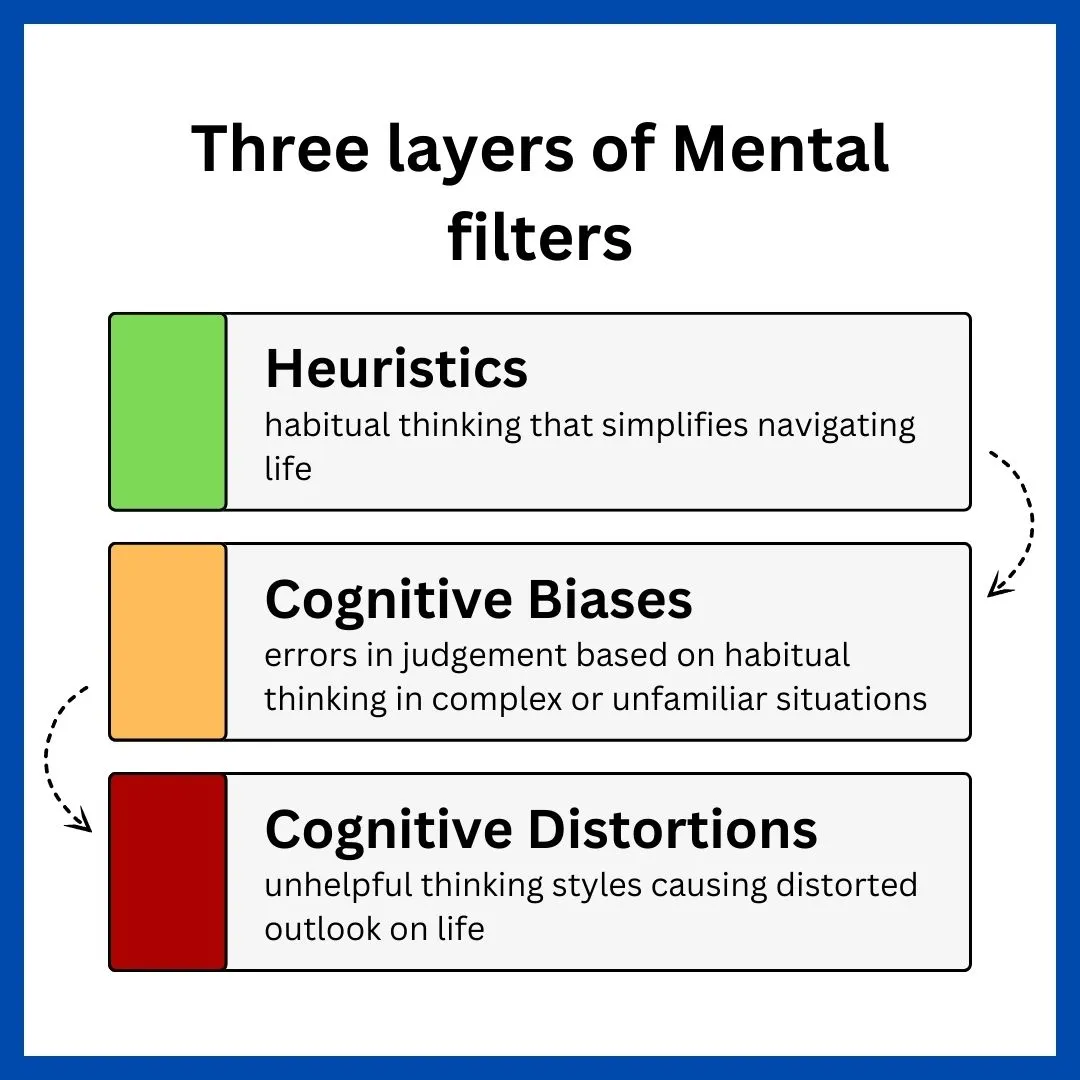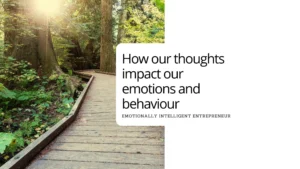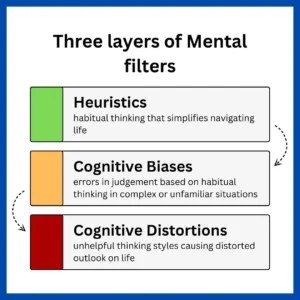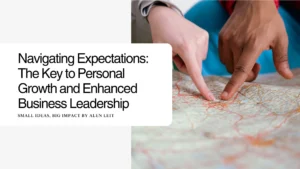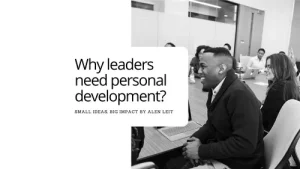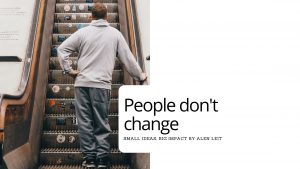We’re going to exploring three fundamental layers of mental filters—Heuristics, Cognitive Biases, and Cognitive Distortions—that play a crucial role in how we interpret and react to the world around us.
In this post, I break down each of these layers, discuss how they interact, and examine the implications they have on our personal and professional lives.
By becoming more aware of these mental filters, we can better regulate our thoughts and actions, leading to more desirable outcomes and improved decision-making.
Whether you’re looking to enhance your personal development or gain insights into human behavior for professional reasons, understanding these psychological frameworks is key.
Table of Contents

Heuristics
Heuristics are mental shortcuts that help us make decisions quickly without having to spend a lot of time analyzing every possible detail.
They streamline our cognitive processing by reducing the complex task of assessing probabilities and predicting values to simpler judgment operations.
Heuristics are both positive and negative for our lives.
In many everyday situations, heuristics are incredibly useful and lead to satisfactory or even optimal decisions with less effort. They can also be leveraged in marketing situations to manipulate people’s decisions.
heuristics pave the way for cognitive biases when the shortcuts, which are generally efficient and useful, misfire. This misfiring can lead to errors in judgment and decision-making that are systematically skewed in predictable ways, which we identify as cognitive biases.
Examples:
- Anchoring Heuristic: Making decisions based upon a subjective anchoring point that influences all subsequent thinking on a topic.
- Affect Heuristic: Making decisions based on emotions, moods, and "gut feelings" rather than logic.
- Availability Heuristic: Making decisions based upon information that is easily available.

Cognitive Biases
While heuristics are meant to be helpful by making decision-making more efficient, they sometimes lead to errors or biases—particularly in complex or unfamiliar situations.
Cognitive biases occur because the shortcuts that are usually effective in everyday situations may not always provide accurate or appropriate outcomes in every context.
Everyone is affected by at least a couple of biases, which tend to feel logical and rational.
These biases hinder your capacity for unbiased judgement of the situation and sabotage the decision-making processes.
Common practical examples for entrepreneurs include:
Confirmation bias
This is the tendency to favor information that confirms your existing beliefs and ignore information that contradicts them.
Example:
If you believe your new product will be a hit, you might focus only on positive feedback from early testers and ignore critical comments that could help you improve the product.
Anchoring bias
This occurs when you rely too heavily on the first piece of information you hear when making decisions.
Example:
If the first investor you pitch offers a low valuation for your startup, you might find yourself setting similarly low expectations in negotiations with other investors, even if your startup deserves a higher valuation.
Bandwagon Effect
This bias leads people to do something primarily because other people are doing it, regardless of their own beliefs, which could be different.
Example:
Deciding to enter a market or add certain features to your product simply because competitors are doing it, not because market research or customer feedback suggests it’s a good decision.

Cognitive Distortions
Then there are cognitive distortions, that are systems of specific unhelpful thinking styles that lead to undesirable outcomes over and over again.
Every stressful and triggering event in our lives is accompanied by a cognitive distortion that was formed to serve (protect) us from undesirable outcomes, but in turn creates a separate bunch of undesirable consequences.
Examples:
- Arbitrary inference (drawing conclusions without evidence)
- Over-generalization (making broad negative assumptions based on limited instances)
- Dichotomous thinking (seeing things in black-and-white terms)
Takeaways
When we are in stress it is hard to reflect on what is happening in the situation without distorting what is going on with our perception patterns.
This is why self-discovery and self-regulation development are crucial, they help to develop the needed skills to become aware of your experiences, heuristics, biases, distortions and expectations, and regulate your perception and behavior to create more desirable outcomes for your quality of life and business growth.
Next read suggestion
After learning about mental filters as the next step I highly recommend learning about how our thoughts impact our emotions and behaviour (click to read).
